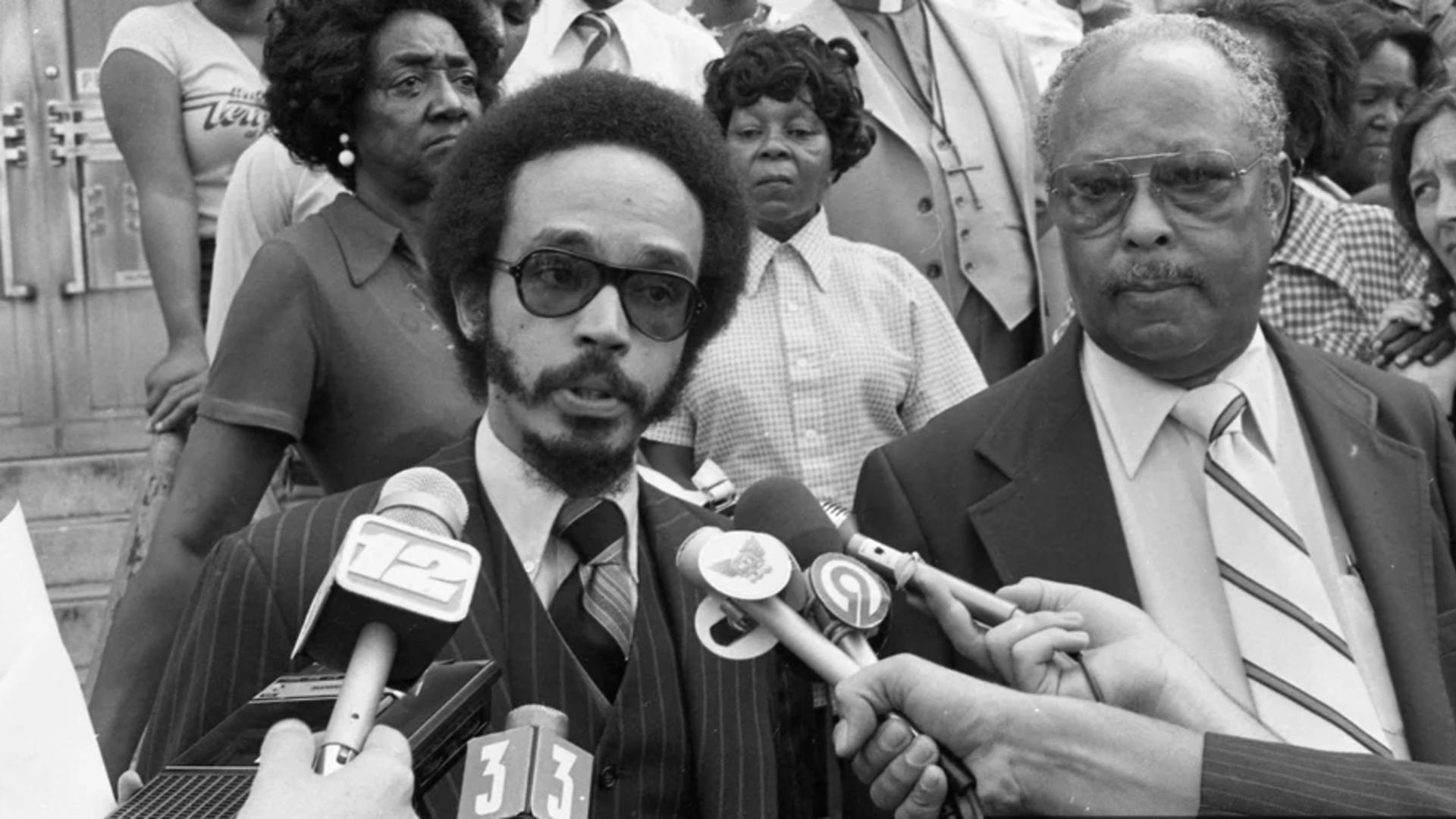
Give as a gift
On April 19, 1980, four Black women stood waiting for a cab on Chattanooga’s 9th St. when a car passed, driven by a local Ku Klux Klan leader. His passengers, also Klansmen, worked together to fire shotgun blasts from the open window. The gunfire wounded the four friends, and a fifth woman was struck by flying glass as the Klansman continued up the road, firing more shots. In criminal court, an all-white jury acquitted two of the Klansmen and sentenced the third to just nine months. He served only six. Civil unrest followed the verdict, sparking national attention and that of the Center for Constitutional Rights in New York City. The organization had been waiting for the right opportunity to use a new legal strategy against hate groups in civil court.
CCR attorney Randolph McLaughlin and his legal team brought the shooters to federal civil court on behalf of the injured women. McLaughlin successfully argued that they were entitled to compensation based on a Reconstruction-era law called the 1871 Ku Klux Klan Enforcement Act. President Grant signed this act into law following the Civil War to curb racial violence in a lawless South where law enforcement and public officials were often Klansmen themselves. It allowed the prosecution of civil rights violations in federal civil court, which meant that survivors could still sue for damages in civil court when the criminal court failed.
Not only did the court award the women today’s equivalent of over $1.5 million, but they issued an injunction against all Klan activities in the city of Chattanooga. To this day, Chattanooga residents can thank these women for driving the Klan out of the city forever. McLaughlin’s use of the KKK Act set a nationwide legal precedent that allowed more racial violence cases to be tried in civil courts with the same statute, chipping away at the Klan’s power and funding over time. As they were sued all over the nation, financial losses and diminished influence forced Klan outfits out of more cities. Today, the precedent set by the Chattanooga Five is still used to fight hate in a time when racial violence is again on the rise. Thanks to Viola Ellison, Lela Evans, Opal Jackson, Katherine Johnson, and Fannie Mae Crumsey, we now have the tools to fight it.
- Year2024
- Runtime35 minutes
- DirectorJohn Beder
- ProducerBen Crump, Cameron S. Mitchell, Raji Ramanathan
On April 19, 1980, four Black women stood waiting for a cab on Chattanooga’s 9th St. when a car passed, driven by a local Ku Klux Klan leader. His passengers, also Klansmen, worked together to fire shotgun blasts from the open window. The gunfire wounded the four friends, and a fifth woman was struck by flying glass as the Klansman continued up the road, firing more shots. In criminal court, an all-white jury acquitted two of the Klansmen and sentenced the third to just nine months. He served only six. Civil unrest followed the verdict, sparking national attention and that of the Center for Constitutional Rights in New York City. The organization had been waiting for the right opportunity to use a new legal strategy against hate groups in civil court.
CCR attorney Randolph McLaughlin and his legal team brought the shooters to federal civil court on behalf of the injured women. McLaughlin successfully argued that they were entitled to compensation based on a Reconstruction-era law called the 1871 Ku Klux Klan Enforcement Act. President Grant signed this act into law following the Civil War to curb racial violence in a lawless South where law enforcement and public officials were often Klansmen themselves. It allowed the prosecution of civil rights violations in federal civil court, which meant that survivors could still sue for damages in civil court when the criminal court failed.
Not only did the court award the women today’s equivalent of over $1.5 million, but they issued an injunction against all Klan activities in the city of Chattanooga. To this day, Chattanooga residents can thank these women for driving the Klan out of the city forever. McLaughlin’s use of the KKK Act set a nationwide legal precedent that allowed more racial violence cases to be tried in civil courts with the same statute, chipping away at the Klan’s power and funding over time. As they were sued all over the nation, financial losses and diminished influence forced Klan outfits out of more cities. Today, the precedent set by the Chattanooga Five is still used to fight hate in a time when racial violence is again on the rise. Thanks to Viola Ellison, Lela Evans, Opal Jackson, Katherine Johnson, and Fannie Mae Crumsey, we now have the tools to fight it.
- Year2024
- Runtime35 minutes
- DirectorJohn Beder
- ProducerBen Crump, Cameron S. Mitchell, Raji Ramanathan